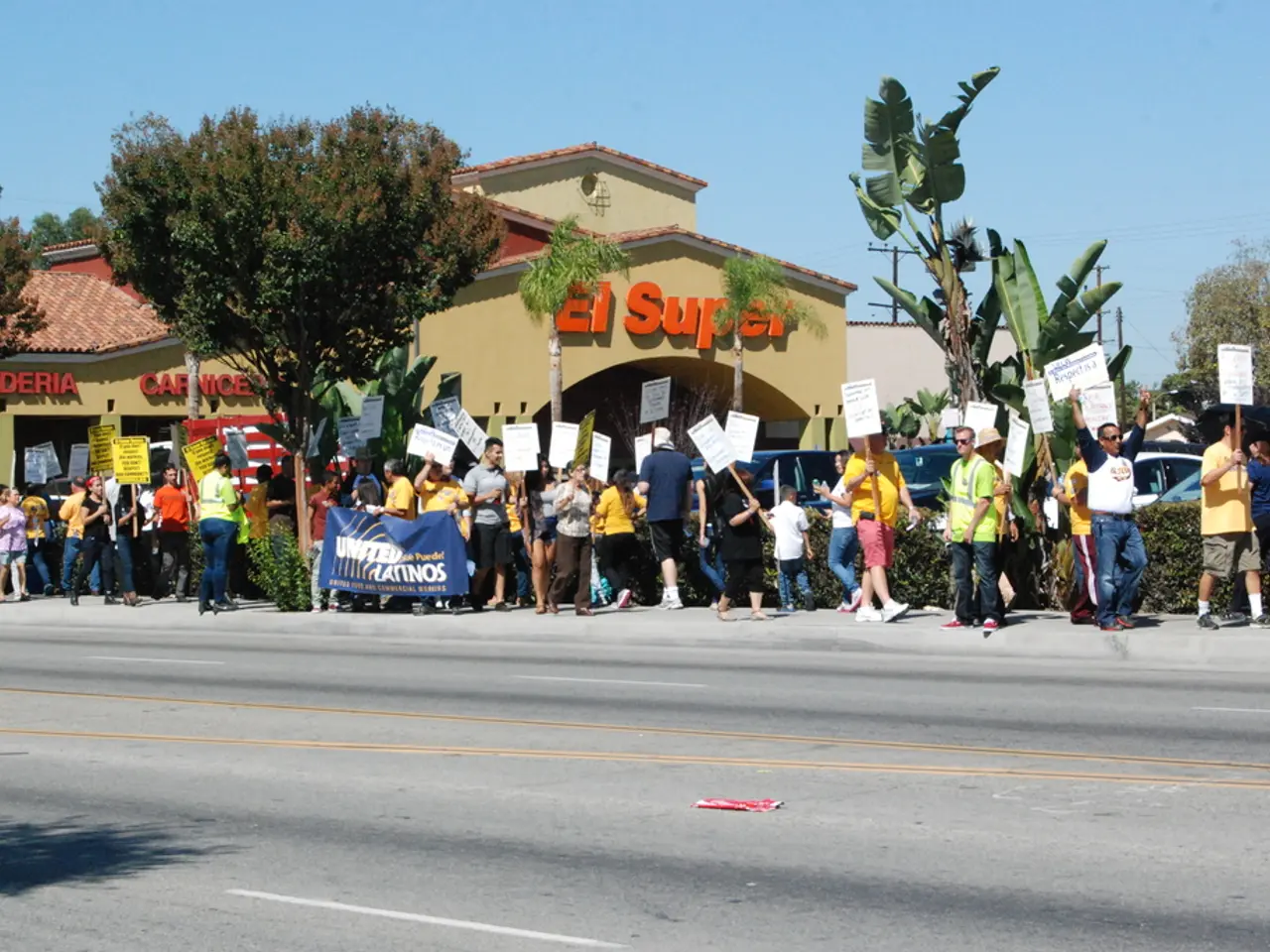Iranian rockets launched, Israeli military responds
Title: Mideast Tension Rises: Latest Iranian Strikes on Israel
Iran is once again launching rockets at Israel. Air raid sirens echoed across the Jewish state, sounding the alarm as defense systems scrambled to intercept the hostile projectiles[1]. People were advised to seek shelter in the aftermath, but no immediate information is available about damages in urban areas or casualties[1].
Meanwhile, one of Israel's largest refineries, Bazan, has been forced to shut down after an attack brought significant damage to its power plant. The resulting halt in production will impact Israel's production of oil products, including jet fuel for fighter planes[2]. Tragically, three employees were reportedly killed in the attack[2].
Iran has presented its attacks on Israel to the UN Security Council as self-defense[1]. Claiming their actions are "proportionate acts of self-defense", they are targeting only military objectives and related infrastructure[1]. Tensions soar as the UN Charter requires countries to report any measures taken in self-defense against an armed attack[4].
In response, the Revolutionary Guards declare they will continue the assault on Israel until morning[1]. Some reports suggest incoming attacks on both Tel Aviv and Haifa[1].
As the conflict escalates, Israeli Finance Minister Bezalel Smotrich insists that U.S. President Donald Trump hasn't asked Israel to cease its military operation[1]. Smotrich notes that Israel has not reached the halfway point of its planned offensive[1]. Trump has previously urged Tehran to engage in negotiations with Israel, but the situation remains volatile.
Following the attack on an Iranian state broadcaster, Iran has issued evacuation warnings to two Israeli channels, Channel 14 and popular Channel 12[1]. Initial evacuation orders were given for a Tehran district housing approximately 300,000 residents[1], though the main building of the broadcaster remarkably spared from significant damage[1].
The conflict between Iran and Israel has embattled the Middle East for months now. For decades, Iran has been a teetering adversary to Israel, with animosity cementing more firmly after the Iranian regime took power in 1979[7]. Most recently, the Iranian regime has accused Israel of attacking its nuclear program[6]. Israel's Prime Minister, Benjamin Netanyahu, has not dismissed the possibility of targeting Iran's Supreme Leader Ayatollah Ali Khamenei, stating it would end the conflict, not escalate it[6].
Many Iranian intellectuals have called for an end to the hostilities and a halt to Iran's uranium enrichment, fearing both the destruction of their country and the violation of international law[5]. Guided by humanitarian concern, numerous representatives have signed a petition pleading for an end to the violence[5].Despite pleas for peace, the cycle of attacks and counterattacks continues.
As tensions rise, numerous nations and leaders attempt to mediate in hopes of de-escalating the ongoing conflict. Turkish President Recep Tayyip Erdogan has offered Turkey's services as a mediator, an avenue Germany, Britain, and France have also explored in an attempt to resume and expedite peace talks over Iran's nuclear program[3].
The International Atomic Energy Agency (IAEA) reports no additional damage to Iran's uranium enrichment facilities following the attacks[8]. Israel claims it has destroyed a significant portion of Iranian ground-to-ground missile launchers[2]. As the purpose of these attacks remains clear, the future of the region is uncertain as tensions continue to rise.
[1] ntv.de, toh/chr/rog/dpa/AFP/rts[2] Media reports[3] German Foreign Minister Johann Wadephul[4] Article 51 of the UN Charter[5] ntv.de[6] ABC[7] ntv.de[8] International Atomic Energy Agency, IAEA
- The ongoing conflict between Iran and Israel has reignited discussions about community and employment policies within the affected nations, as the political climate may influence job stability and safety in urban areas.
- As the situation escalates, the policies and legislations surrounding crime and justice, as well as policy-and-legislation in general, will be critical in determining the accountability of the involved parties and potential consequences for acts of aggression.
- In the wake of the attacks, general news reports have highlighted a spike in accidents caused by the instability and potential for further violent confrontations, emphasizing the need for law enforcement agencies to remain vigilant and take necessary precautions.








